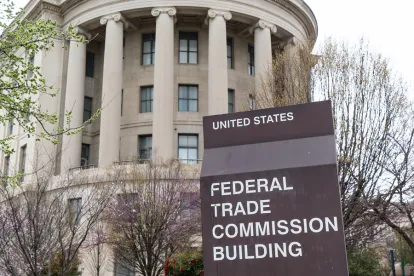For the second time since 2016, glue producer Chemence, Inc. (Chemence) has found itself adverse to the Federal Trade Commission (FTC) for making allegedly deceptive claims that its products are American made. And this time it cost them $1.2 million – the highest settlement amount ever paid in a “Made in USA” case.
In 2016, the FTC charged Chemence, among several other glue manufacturers,[1] with making unqualified, deceptive country-of-origin claims about their cyanoacrylate superglue products such as Kwifix, Krylex, and Hammer Tite, including labeling them “Made in USA,” “Proudly Made in USA,” and using images of the American flag on product packaging. According to the 2016 FTC complaint, a significant proportion of the costs of the chemical components in the glues came from imported chemicals. Further, the FTC alleged that Chemence induced sellers to deceive unwitting consumers by providing them with “Made in USA” promotional materials for the products. The Stipulated Court Order against Chemence fined the company $220,000 and prohibited it from representing, expressly or by implication (including in labelling and advertising) that its products were USA made unless it could show that the product’s final assembly or processing occurred in the United States, that all significant processing occurred in the United States, and that all or virtually all ingredients or components of the product were made and sourced in the United States. Otherwise, Chemence was required to make a “clear and conspicuous qualification [which] appears immediately adjacent to the representation that accurately conveys the extent to which the product contains foreign parts, ingredients, and/or processing.” The order also required the company to submit a compliance report to the FTC one year after the order.
But according to the FTC’s 2020 complaint, Chemence and its president, James Cooke, continued to sell the company’s glue products with “Made in USA” labels using the same foreign-sourced ingredients with no qualifying language, in violation of the 2016 Order. The FTC also asserts that in 2017 Cooke falsely claimed in the company’s annual compliance report that the company had relabeled its glue products to reflect that they are made with globally sourced materials.
The terms of the 2020 proposed settlement agreement bar Chemence and Cooke from making country-of-origin claims they cannot substantiate. Moreover, the agreement bans them from making any unqualified “Made in USA” claims unless they can show that the product’s final assembly and all significant processing occurs in the U.S. and that all or virtually all ingredients or components of the product are made and sourced in the United States. Qualified “Made in USA” claims must clearly and conspicuously disclose how much of a product contains foreign parts, ingredients or components, and/or processing. To support claims that a product is assembled in the U.S., they must demonstrate that the product is substantially transformed in the United States, with its principal assembly in the United States, and substantial U.S. assembly operations. The company must submit yearly compliance reports and inform all sellers that purchased the company’s glue products labeled as USA-made that the products contain imported materials.
The Commission vote to issue the complaint and accept the proposed consent order was 5-0. Commissioner Rohit Chopra issued a statement in which he applauded the Commission’s sanctions against Chemence and its president as “real consequences” and “another step forward in protecting the Made in USA brand and restoring the Commission’s law enforcement credibility.”
Many customers who want to support domestic industries look for “American Made” claims or symbols. Knowing this, the FTC continues to pursue “Made in USA” claims aggressively, and has a pending rulemaking on the topic. Those who are caught once making false U.S. origin claims and continue to make them face significant consequences, as the record-breaking penalty imposed on Chemence and Cooke demonstrates.
Many companies find the difference between country-of-origin rules imposed by Customs and Border Control and the FTC’s “Made in USA” guidance to be confusing, and, as we have previously noted, the landscape is complicated still more because of California’s law on U.S. origin claims.[2] But businesses wishing to advertise their products as American made would be well advised to familiarize themselves with the FTC’s Enforcement Policy Statement on U.S. Origin Claims guidance to avoid their “Made in USA” claims from coming unglued.
[1] See https://www.ftc.gov/news-events/blogs/business-blog/2016/02/ftc-challenges-companys-made-usa-claims.





 />i
/>i

